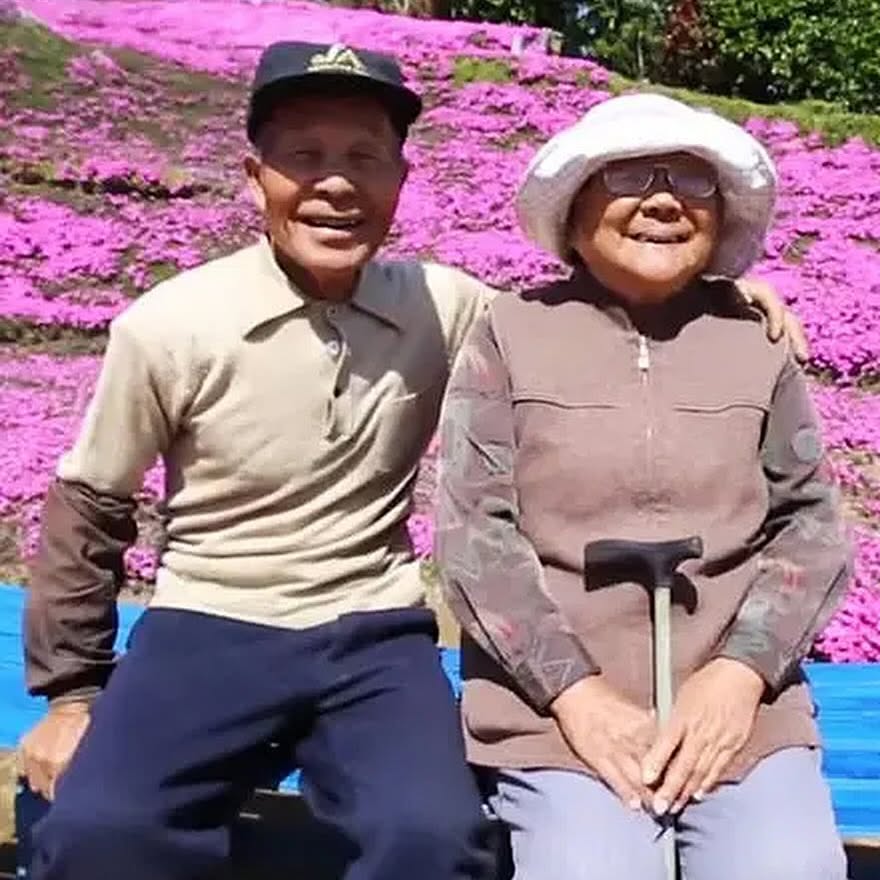After His Wife Lost Her Sight and Fell into Depression, Mr. Kuroki Spent Two Years Planting Thousands of Blossoms So She Could Smell Joy Again
In a quiet corner of Shintomi Town, in Japan’s Miyazaki Prefecture, there’s a hill blanketed in pink — thousands upon thousands of shibazakura flowers blooming every spring. They curve around paths, climb up gentle slopes, and spill down fields like waves of soft color. The sight alone could make anyone stop and stare.
But what makes this garden special isn’t just how beautiful it looks — it’s why it was planted.
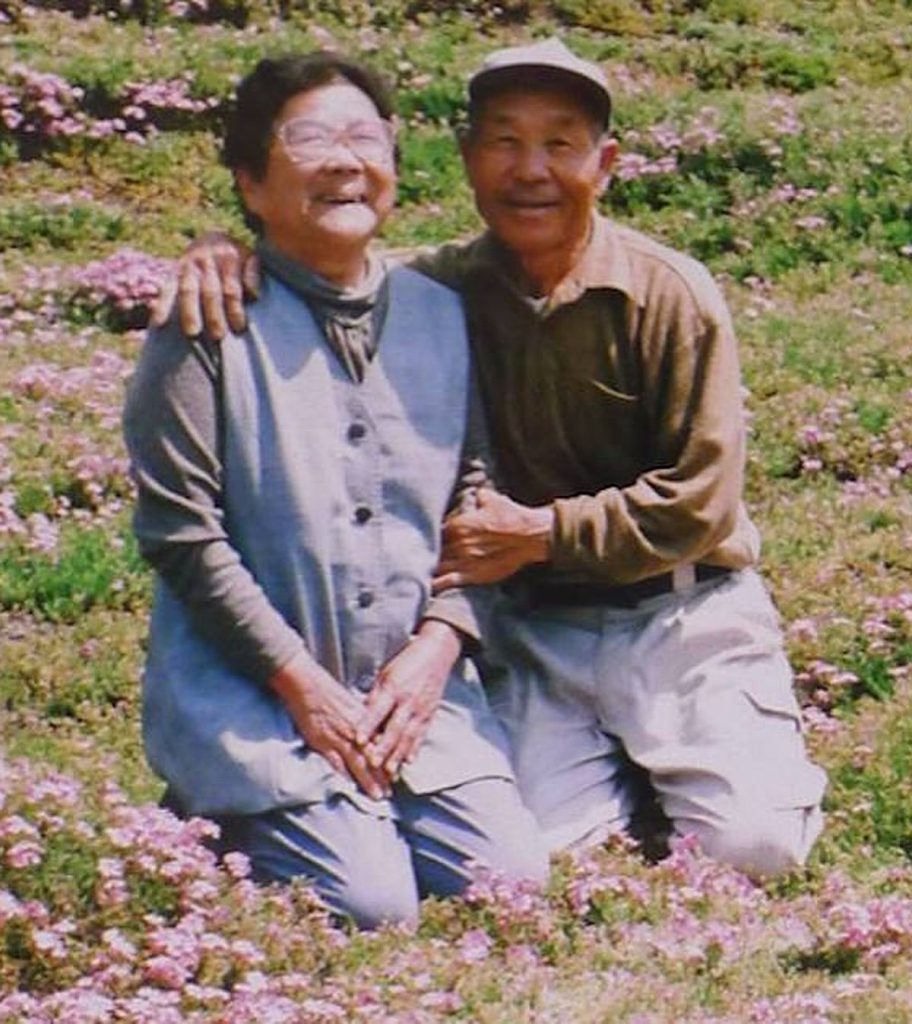
The man behind it all is Mr. Kuroki, a dairy farmer and husband. He didn’t grow these flowers to attract visitors or to start a business. He planted them out of love. Real, quiet, unwavering love.
Many years ago, Mr. Kuroki lived a peaceful life with his wife and children. Together, he and his wife ran a dairy farm for over 30 years. They worked hard. They raised their family. And when retirement finally arrived, they looked forward to traveling around Japan together — a dream they’d talked about for years.
But life doesn’t always go as planned.
Suddenly, Mrs. Kuroki began to lose her eyesight due to complications from diabetes. Within a week, her world turned dark. And with that darkness came something harder to see: deep, suffocating depression. She withdrew from everything — family, friends, even sunlight. The woman who once loved walking the farm now stayed indoors, silent and hurting.
Mr. Kuroki was devastated. He couldn’t imagine life without her smile. But he also couldn’t force her to come back to the world. So he did something that no one expected.
He started planting flowers.
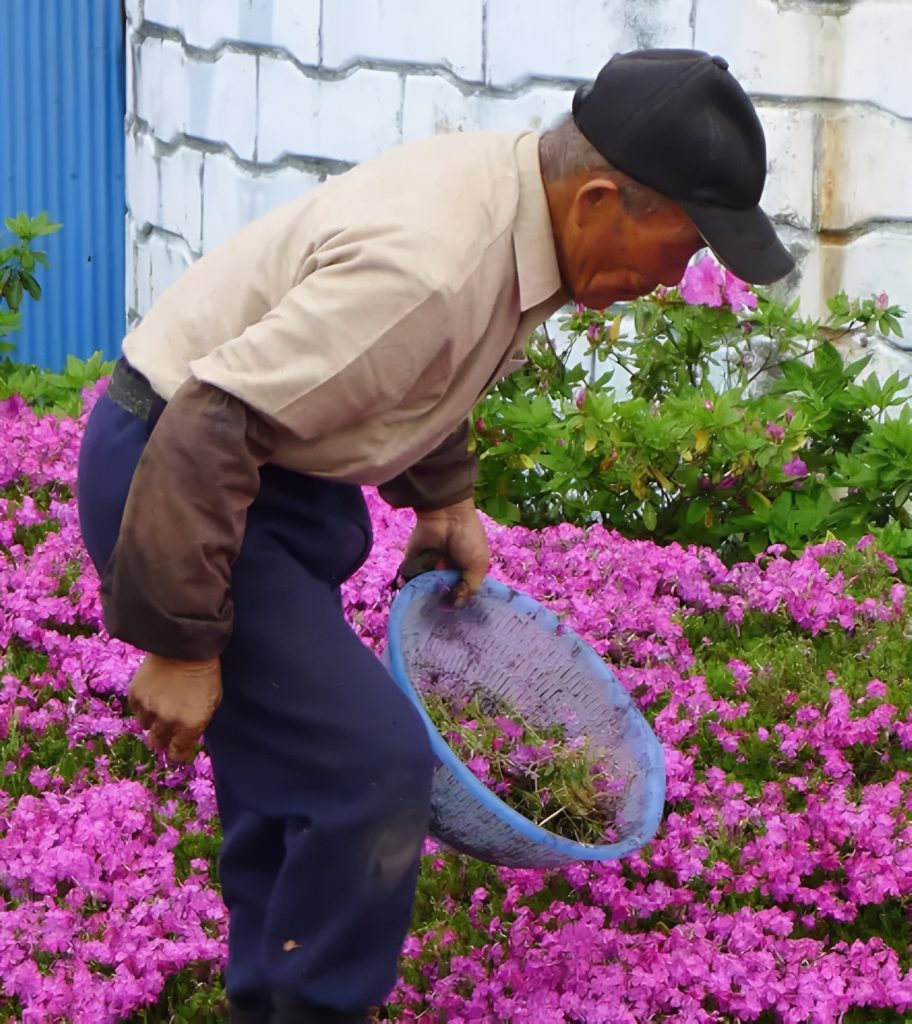
When Words Aren’t Enough, Let Nature Speak
Mr. Kuroki knew his wife couldn’t see the world anymore — but she could still smell it. And so, with nothing more than hope in his heart and soil beneath his hands, he began planting shibazakura, also known as moss phlox — a type of flower known not only for its breathtaking pink bloom, but for its sweet, gentle fragrance.
At first, it was just a few patches. A handful here, a row there. But he kept going. Every day, for nearly two years, he cleared land, dug rows, and planted more. Over time, he covered the hillside in over 2,000 vibrant pink blossoms.
He wasn’t a landscaper. He wasn’t trying to be famous. He was simply a husband trying to bring back a piece of joy to the woman he loved.
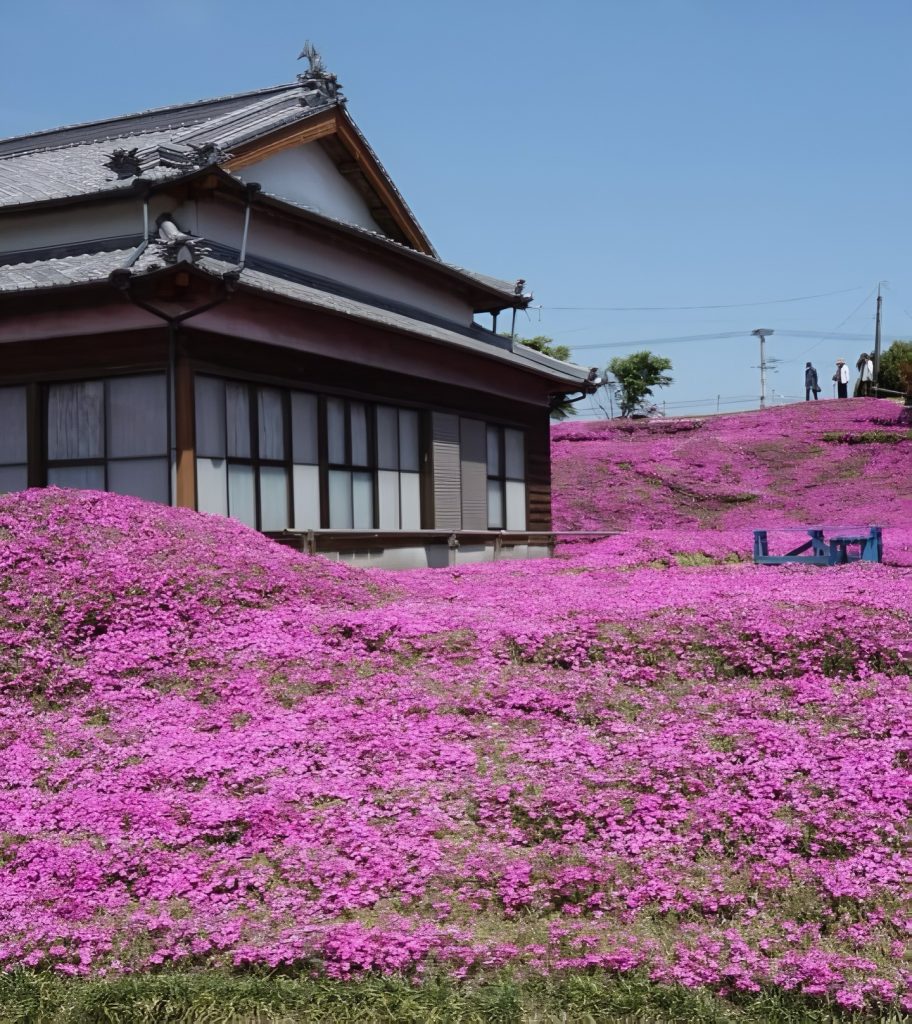
And then something beautiful happened.
Mrs. Kuroki began to come outside again.
At first, it was just for a few minutes — drawn by the scent of the flowers and the warmth of the sun. But slowly, the garden pulled her back toward life. She began to smile again. She started to talk again. Her world, though still dark, began to feel full again.
And she wasn’t the only one who noticed.
As word spread about the pink carpet of flowers, visitors began to come. First a few neighbors. Then people from nearby towns. Then strangers from all over Japan. They didn’t come just for the flowers — they came for the story.
A story of love so strong, it grew roots.
Today, the Kuroki garden welcomes thousands of visitors every spring. Some bring flowers of their own. Others come to take photos, breathe in the fragrance, or just feel the peace. But every single one of them leaves with something more than just a picture.
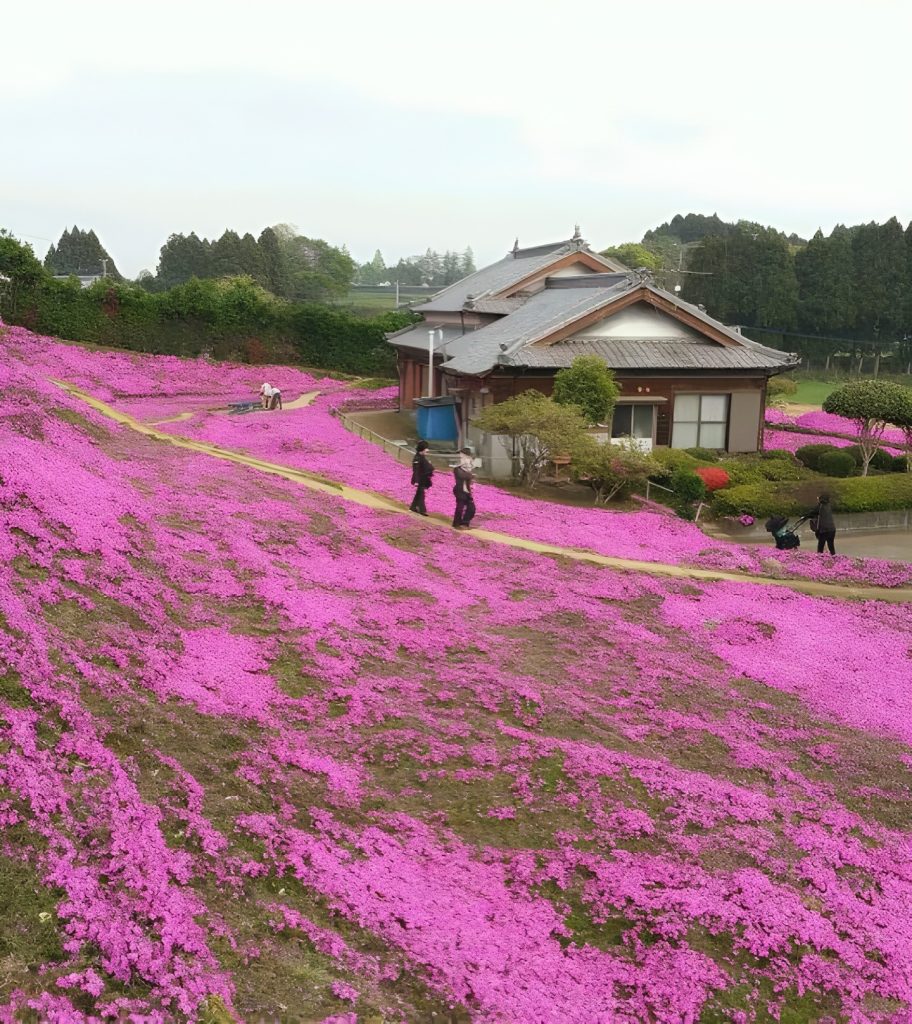
They leave with proof that love — real love — doesn’t always come in grand gestures. Sometimes, it grows one seed at a time.
Mr. Kuroki still tends the flowers himself. He greets visitors with a shy smile and a humble wave. He doesn’t see himself as a hero. He’s just a man who missed his wife’s smile — and found a way to bring it back.
There’s a quiet kind of magic in that.
And in a world where we often chase big moments, his story reminds us that the greatest things grow from patience, care, and doing something kind every single day — even if no one sees it at first.
Because sometimes, when life turns dark, all it takes is one person planting hope for the light to come back.

Daniel Reed is a curious mind with a passion for breaking down how the world works. With a background in mechanical engineering and digital media, he turns complex ideas into easy-to-understand articles that entertain and inform. From vintage tools and modern tech to viral internet debates and life hacks, Daniel is always on the hunt for the “why” behind the everyday. His goal is simple: make learning feel like scrolling through your favorite feed — addictive, surprising, and fun.
